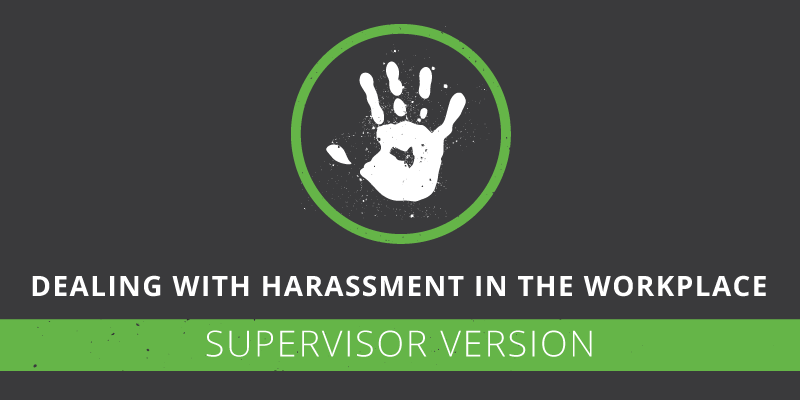By Daniela Ibarra

This is part two of our Harassment in the Workplace series, in which we explore employees’ responsibilities for dealing with workplace harassment complaints. If you haven’t yet, check out the HR version here.
Being a manager or supervisor is not something to be taken lightly. This is a big deal. You’re one of the primary factors in reducing and eliminating sexual harassment at your organization.
Personally, from a career standpoint, this isn’t a ball you want to drop. For one thing, it hurts the performance of your team, which is never a good thing.
Secondly, not doing your job here is a highly visible failure in terms of supporting your organization’s culture, and effectively managing your team.
If you don’t think that sexual harassment’s happening, and it is occurring, then you’re a poor manager. If you do know about it, and do nothing, then you’re negligent. Either way, there’s no excuse.
You’re also in a unique position legally. As a supervisor, you’re an “agent of the organization.” That means you’re held to a higher standard of behavior, and you have certain legal responsibilities to ensure that your team’s workplace is free of discriminatory behavior. Mishandle a sexual harassment incident, and you’re creating liability for your employer.
And, just as important, you’re creating personal liability. Individual supervisors have been held responsible, both legally and financially, for causing or mishandling sexual harassment complaints.
And what’s meant by “mishandled?” It means not doing everything in your power to prevent sexual harassment, and not handling it properly when it occurs.
It’s not about you not crossing the line. It’s about not going anywhere near the line. As a manager or supervisor, you must be the perfect role model for your team.
You must take action on every instance of sexual harassment that you hear about, or observe. You must ensure that a best-effort investigation is done on every complaint coming from your department, giving each incident equal treatment.
How to handle a harassment situation in the workplace
The first rule of supervision when it comes to sexual harassment is, don’t handle this on your own, call HR! This is extremely important and you should make sure that all supervisors know this rule of thumb.
Sure, you can handle minor or isolated incidents on your own. A serious discussion with an offender will often be enough to stop it from happening again.
But if you see something serious, or if something’s been a frequent occurrence, then you have a violation to deal with. And if you have any sort of complaint, either directly from a target, or indirectly from an observer, then you have a formal incident for Human Resources to investigate.
Even if someone makes an off-hand comment about harassment, or mentions it in passing, it’s still a formal complaint the moment you hear it.
You don’t get to decide if it’s a real complaint or not. As an agent of the organization, you have to deal with it formally, to the best of your abilities.
Imagine someone comes into your office and says, “I want to talk about something, but it has to be kept confidential. I don’t want anyone else to know about it. And I don’t want you to take action on it. I just want you to be aware.”
What’s your response? Do you reply “ok,” and listen to what they have to say? … The answer is, absolutely not!
You cannot guarantee confidentiality in all situations, especially if it’s a sexual harassment complaint. You, and the organization, are required to investigate the incident. And that may mean talking to other people about what they’ve observed.
So your answer has to be, “I’m sorry, but I can’t guarantee confidentiality. Depending on what you tell me, I may be legally required to tell HR. And they may be required to do a full investigation.”
What if the person decides not to share the information? Then it still requires a call to HR to let them know that one of your subordinates has a concern, and that he or she is reluctant to act on it. HR may be able to reach out, and help with the situation.
Read more: Dealing with Harassment in the Workplace: Employee Version
Daniela Ibarra researches and writes on a variety of business topics, including workplace dynamics, HR strategies, and training trends and technology.
